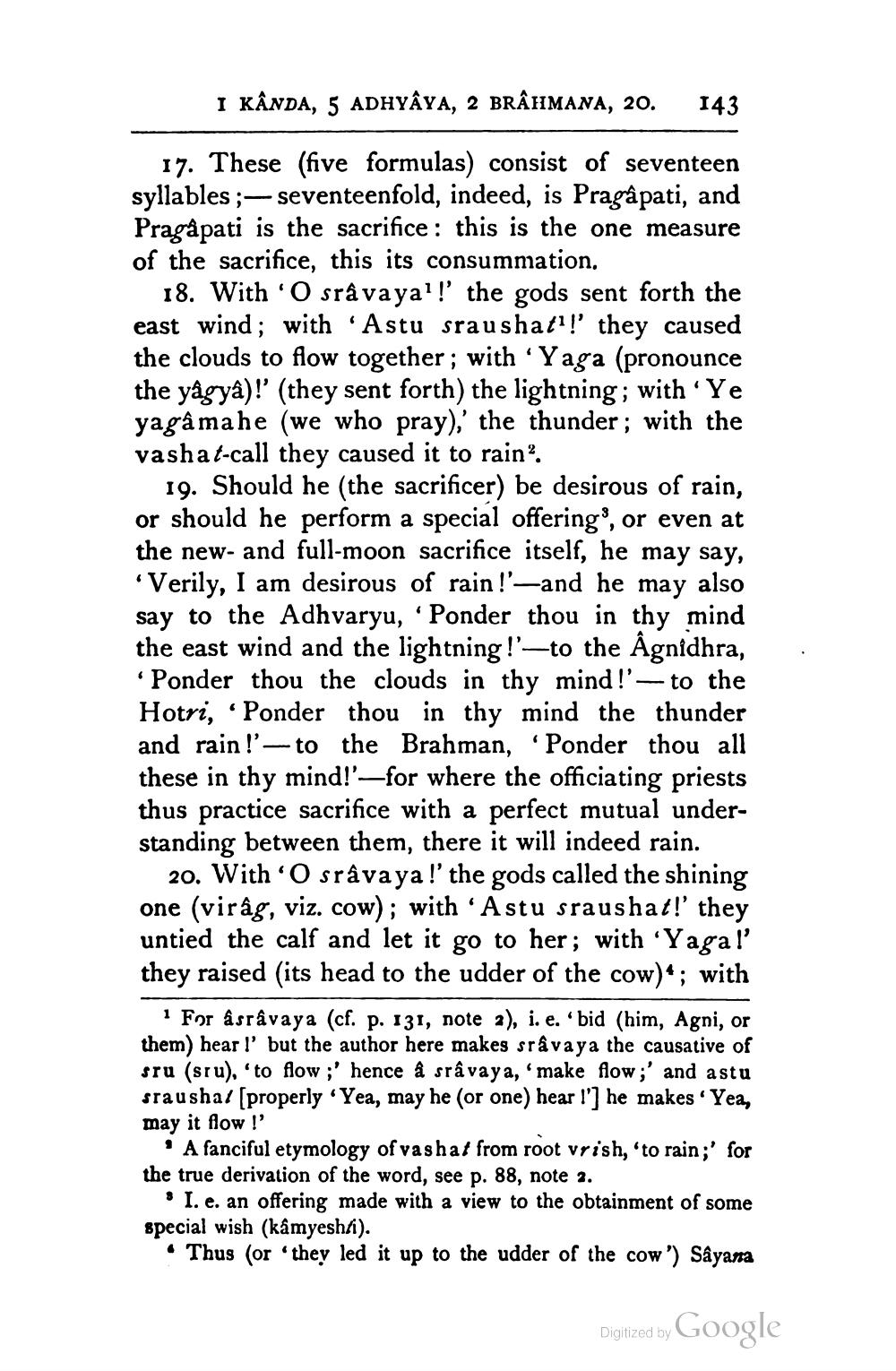________________
I KÂNDA, 5 ADHYAYA, 2 BRÂHIMANA, 20.
143
17. These (five formulas) consist of seventeen syllables ;- seventeenfold, indeed, is Pragâpati, and Pragåpati is the sacrifice : this is the one measure of the sacrifice, this its consummation.
18. With 'O sråvaya'!' the gods sent forth the east wind; with 'Astu sraushat?!' they caused the clouds to flow together; with “Yaga (pronounce the yâ gyà)!' (they sent forth) the lightning; with 'Ye yagâ mahe (we who pray),' the thunder ; with the vashat-call they caused it to rain”.
19. Should he (the sacrificer) be desirous of rain, or should he perform a special offerings, or even at the new- and full-moon sacrifice itself, he may say, *Verily, I am desirous of rain !'—and he may also say to the Adhvaryu, 'Ponder thou in thy mind the east wind and the lightning !'—to the Agnidhra,
Ponder thou the clouds in thy mind!'— to the Hotri, Ponder thou in thy mind the thunder and rain!'-to the Brahman, Ponder thou all these in thy mind!'—for where the officiating priests thus practice sacrifice with a perfect mutual understanding between them, there it will indeed rain.
20. With 'O srâvaya !' the gods called the shining one (virág, viz. cow); with 'Astu sraushat!' they untied the calf and let it go to her; with 'Yagal' they raised (its head to the udder of the cow)*; with
1 For âsrâvaya (cf. p. 131, note 2), i. e..bid (him, Agni, or them) hear l' but the author here makes srâvaya the causative of sru (sru), 'to flow ;' hence a srâvaya, make flow;' and astu sraushat (properly Yea, may he (or one) hear l'] he makes ' Yea, may it flow !'
A fanciful etymology of vashat from root vrish, 'to rain;' for the true derivation of the word, see p. 88, note 2.
II. e. an offering made with a view to the obtainment of some special wish (kâmyeshfi).
• Thus (or “they led it up to the udder of the cow') Sâyana
Digitized by Google




